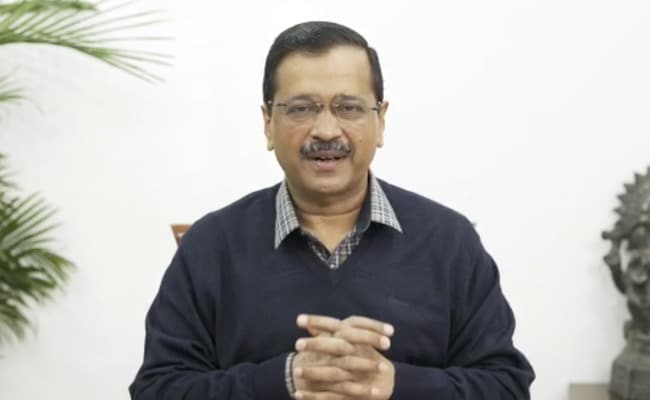Last Updated on December 29, 2021 12:05 am by INDIAN AWAAZ

AMN / NEW DELHI
In view of the rising COVID-19 cases, schools, colleges, cinema halls, spas, gyms, multiplexes, banquet halls, auditoriums, and sports complexes have been closed in the national capital with immediate effect. Night curfew has been imposed in the city from 10 PM to 5 AM. The restrictions have been put in place as a yellow alert has been sounded in Delhi under Graded Response Action Plan.
As per Delhi Disaster Management Authority order, Delhi Metro and buses will operate at 50 percent seating capacity with no standing passengers. Restaurants are allowed will 50 percent seating capacity from 8 AM to 10 PM and bars are allowed with 50 percent seating capacity from 12 noon to 10 PM. Political, religious and festival gatherings have been banned. Maximum 20 persons can attend funerals and weddings. In its order, the DDMA said the weddings can only be done at home. Shops in malls will operate on odd-even basis in the city. Religious places will be open but no visitors will be allowed. Only walking, running, and playing are allowed in public parks and gardens and not picnics.
Interstate movement of buses is allowed up to 50 percent of the seating capacity of a bus. Delhi government offices can function at 100 percent capacity for Group-A officers and Section Officers and 50 percent for officers below Group-A. Private offices have been allowed to function at 50 percent capacity.
Graded Response Action Plan is based on the measures of positivity rate, new COVID cases, and the number of oxygen beds. There are four levels – yellow, amber, orange, and red. COVID cases are rapidly increasing in the last few days and the positivity rate has reached more than 0.5 percent for two consecutive days, besides the regular increase in new Omicron variant of COVID in Delhi.
Delhi’s daily tally climbs to 496, positivity rate heads towards 1%
There were 496 new Covid-19 cases in the Capital on Tuesday, with the daily positivity rate of 0.89%, official data showed. One person died of the infection.
The number of daily infections reported on Tuesday was the highest in over 200 days, or since June 4, when 523 new cases were reported in the city, according to official data.
The seven-day average of daily infections in Delhi has now touched 256 new cases a day. This number, which denotes a region’s case curve, has now been rising consecutively the past two weeks. Just 30 days ago, this number was at 29, data shows.
There are currently 1,612 active cases in Delhi – making it the largest caseload in the city in at least half a year when there were 1,680 active cases on June 25, as per government data.
The total number of cases of heavily mutated Omicron variant of Sars-CoV-2 recorded in the Capital has also mounted to 165, according to data shared by the Union health ministry.
In April and May, the national capital endured a punishing fourth wave. At its worst, the city reported a high of 28,395 cases on April 20 and a positivity rate of 36.24% on April 22. The surge in infections overwhelmed the health care system. In contrast, of the 8,839 beds in hospitals, only 280 were occupied by Covid-19 patients on Tuesday, the health bulletin said.
